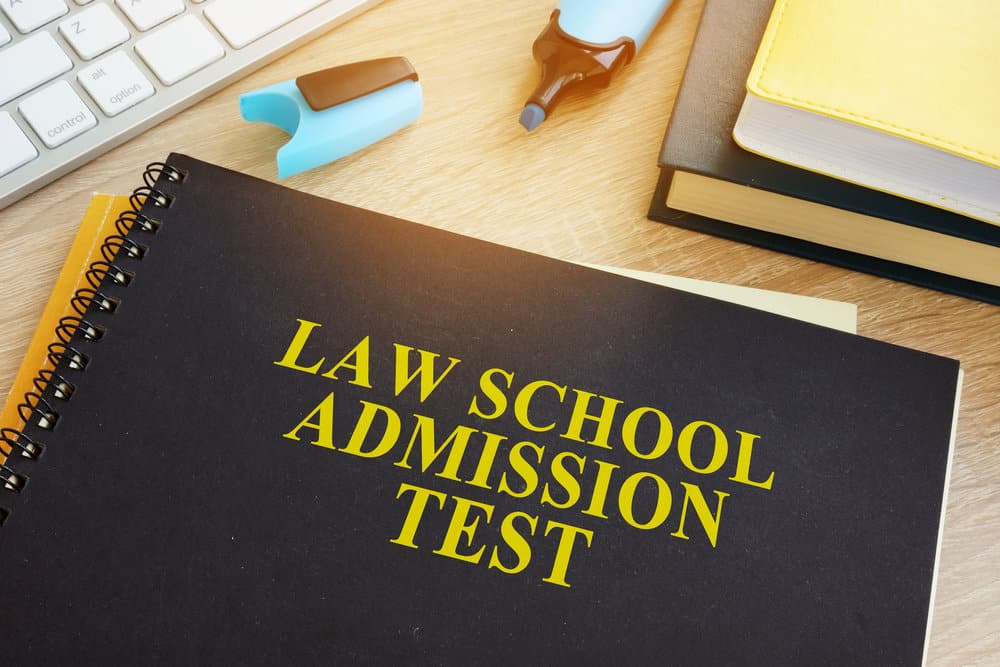The Law School Admissions Test (LSAT) is one of the most notable admissions tests for post-graduate education. The LSAT has a reputation for being difficult to study for, and your scores on the LSAT play a heavy part in your admissions chances to certain law schools.
However, if you haven’t achieved an undergraduate degree, you may be wondering if you can take the LSAT and obtain the necessary scores on this exam without it. Our article gives you all the guidance you need when taking the LSAT without a degree.
Are There Requirements to Take the LSAT?
The LSAT has no prerequisites, and this exam doesn’t test what you would typically learn as part of an undergraduate degree.
While you can take advantage of LSAT tutoring before the exam, there are no courses you can take as part of a degree that will prepare you for the content that the LSAT tests. You don’t need an undergraduate degree to take the LSAT, though many law schools might raise an eyebrow at your application.
If you can demonstrate how you stand apart without an undergraduate degree, your chances of admission into your dream law school are as good as every applicant’s. You can help with high LSAT scores and a stellar personal statement.
Remember that you will need at least a high school degree to be considered for admission into a law school.
Taking the LSAT Without a Degree
Taking the LSAT without a degree is not the traditional choice, but it is something that many individuals pursue, depending on their situation and life circumstances. One of the most common cases is when individuals entered the workforce directly after high school and have an extensive professional career.
As they wish to change careers, they may be faced with obtaining an undergraduate degree or applying directly to law school. In this case, they can use their professional experience as a selling point on their application instead of the undergraduate experience.
It’s important to note that every person is different, and every law school is different. Most law schools don’t require undergraduate degrees to apply, but admissions committees and cultures differ. Make sure to check what the law school you wish to attend requires before taking your next steps to plan out an LSAT study schedule.
LSAT FAQs
The answers to these frequently asked questions about the LSAT will help point you in the right direction for taking this exam with or without an undergraduate degree.
Does Every Law School Require the LSAT?
Historically, the LSAT has been required by almost every law school as part of the admissions application. But in recent years, these requirements have been loosening.
The American Bar Association voted 2022 to remove the LSAT as the only required exam for law school admission, effective by 2025.
Many law schools today are beginning to accept the GRE or GMAT in addition to the LSAT, and it is up to the student which exam they take as part of their admission application. Again, you must contact the law school you wish to attend for more detailed admissions information.
How Long Should I Study for the LSAT?
The LSAT is a complex test for many, and a dedicated study period is often required if you want to properly prepare for this exam and ensure you obtain the highest score possible.
It’s generally recommended that you study for 150 to 300 hours before taking this exam, which typically breaks down to about 20 to 25 hours per week over two to three months.
Of course, some individuals may need to study longer than this, and some may reach their goals faster. Studying for the LSAT is all about figuring out which timeline and study plan works best for you.
Can I Boost My Law School Admissions Chances in Other Ways?
If you don’t have an undergraduate degree and are concerned about your LSAT scores, you can boost your admissions application in other ways.
First, take the time to complete the application so it is error-free carefully. Composing poignant personal statements and providing professional references to attest to your ability to succeed in law school are also wonderful ways to increase your admissions chances.
Should I Skip Undergraduate to Attend Law School?
Some individuals may be itching to enter law school and are willing to skip an undergraduate degree so they can apply right after high school. There’s no straight answer to if you should skip an undergraduate degree, as this is very situation and person-specific.
Remember that many law schools might raise an eyebrow at someone applying directly after high school, but nothing stops you from doing this. Take stock of your goals, the law schools you wish to attend, and your experience before making a final decision.
Increasing Your Chances of Law School Success
Law school is often considered one of the hardest post-graduate schools to receive admission into. Many individuals spend months perfecting their applications and studying for the LSAT.
Taking the LSAT and succeeding in law school without an undergraduate degree is possible, but the application process might look somewhat different for you.
To increase your chances of law school success, spend time understanding what the admissions committee at your chosen law school is looking for. Study hard for the LSAT or another admissions exam to make your application stand out.



